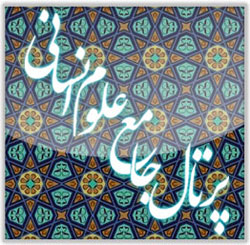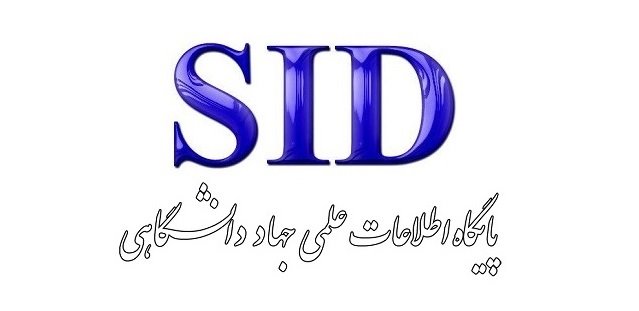Analysis of Factors Influencing Success in Badminton through the Integration of Performance, Social, and Survey Data Using Artificial Intelligence Methods
|
The objective of this study is to analyze the factors influencing success in the sport of badminton by integrating performance, social, and survey data and to identify the key drivers of the development of this sport using artificial intelligence methods. This applied study was conducted using a qualitative approach and a descriptive phenomenological method. The study population consisted of university faculty members, coaches, professional and semi-professional badminton athletes, and sports analysts, from whom 26 participants were ultimately selected as the sample. Data were collected through semi-structured interviews and subsequently analyzed and coded. The validity and reliability of the data were ensured based on the criteria of credibility, transferability, dependability, and confirmability. The results indicated that success in badminton is influenced by a combination of factors, including individual and technical performance, athletic motivation and commitment, social and team interactions, the utilization of technology and data analytics, environmental conditions and training facilities, as well as competitive decision-making and strategic planning. The application of performance data and artificial intelligence technologies enables continuous performance monitoring, technical improvement, intelligent planning, and the identification of the principal drivers of success. This study demonstrates that the integration of performance, social, and survey data using artificial intelligence methods provides a deeper understanding of the factors influencing success in badminton and facilitates the design of optimal training programs to enhance athletes’ performance. The findings offer significant practical implications for improving training quality, identifying talent, and predicting performance, and can serve as an effective guide for coaches and sports organizations. |
Futures Studies of the Integrated Ecosystem of Sports Brands with an Emphasis on Technological Transformations
|
This study aims to explore the future configuration of the integrated ecosystem of sports brands with a particular focus on emerging technological transformations and their strategic implications. The research employed a qualitative exploratory futures-studies design drawing on expert-driven foresight methodologies. Participants were selected based on purposive and criterion sampling, including sports branding specialists, digital transformation experts, technology innovators, and academic researchers with significant experience in sports ecosystems. Data were collected through semi-structured in-depth interviews, expert panel discussions, and systematic documentary analysis of global technological and market reports. The analytic process involved iterative thematic coding, structural analysis through the MICMAC method to map influence–dependence relationships among key variables, and intuitive-logics scenario building to construct plausible future trajectories. Cross-validation among interview insights, panel deliberations, and documentary evidence ensured conceptual coherence and analytical rigor. Analyses revealed that the future of sports brand ecosystems will be predominantly shaped by technological convergence, including AI-driven personalization, IoT-enabled fan engagement, immersive AR/VR experiences, and platform-based value creation. MICMAC results showed strong influence pathways among technological, economic, and consumer-behavior variables, indicating that digital infrastructures will become the core enablers of brand competitiveness. Scenario building produced four plausible futures driven by uncertainties associated with technology adoption, data governance, and platform dominance. Across scenarios, strategic agility, consumer co-creation, sustainability pressures, and globalized digital commerce emerged as decisive factors shaping long-term ecosystem configurations. The study concludes that sports brands are transitioning from traditional linear branding models to interconnected digital ecosystems driven by technological innovation, evolving consumer expectations, and expanding global platforms. |
Developing a Policy Model for the Promotion of Grassroots Sports in Iran with an Emphasis on Leisure Management and Student Talent Identification
|
The purpose of this study was to design a model for sports talent identification among students aged 8–12 years based on the utilization of leisure time. The present study is applied in terms of purpose. Regarding data collection and information gathering, it is classified as a field study, and the implementation method follows a mixed (qualitative–quantitative) approach. The qualitative statistical population consisted of university faculty members in the field of sports management—particularly experts in leisure studies—physical education teachers, and specialists in sports talent identification. The sampling method in this section was purposive, continuing until theoretical saturation at 16 participants. The quantitative statistical population consisted of planners and administrators of the Ardabil Department of Education, totaling 3,178 individuals. Using stratified random sampling and Morgan’s table, a sample size of 432 participants was determined, from which 425 valid and unblemished questionnaires were obtained. The data collection instrument was a researcher-developed questionnaire with 61 items measured on a five-point Likert scale. Data analysis was performed using SPSS and LISREL software through structural equation modeling tests. According to the results derived from analyzing the research questions, the contribution of factors influencing the use of leisure time among students aged 8–12 years for sports talent identification included: organizational development and collaboration (57%) as the least influential factor; expansion of social and communicative capacities (72%); establishment of supportive and motivational infrastructures (80%); educational and cultural infrastructures (70%); specific and coherent planning (89%); development and enhancement of relevant human resources (96%) as the most influential factor; and economic policymaking (65%). All research instruments demonstrated acceptable and appropriate levels of model fit. |
Lived Experience of Electronic Sports: A Phenomenological Study of Motivations and Challenges
|
This study was conducted with the aim of exploring the lived experiences of electronic sports (e-sports) players in Iran and providing a phenomenological analysis of their motivations and challenges. The statistical population included active e-sports players in Iran who were selected purposefully using the theoretical sampling method. The inclusion criteria were active experience in this field, willingness to participate in the study, and the ability to articulate personal experiences. In total, 17 participants (4 women and 13 men) with an average age of 25 years and between 4 to 12 years of experience in e-sports were examined. Data were collected through in-depth semi-structured interviews. To ensure credibility and dependability, the trustworthiness criteria proposed by Guba and Lincoln (1985)—including prolonged engagement in the field, persistent observation, triangulation, peer debriefing, and member checking—were applied. Findings revealed that the lived experiences of players can be analyzed across three main dimensions: (1) Lived Experiences (self-concept and identity, emotional experiences, cognitive and skill development, and escapism and role-playing); (2) Motivations for Participation (game appeal and dynamics, social and global interactions, economic and professional opportunities, accessibility and usability, and emotional and motivational effects); and (3) Challenges Encountered (personal challenges, financial and economic barriers, technical and infrastructural problems, social and familial obstacles, and competitive and professional difficulties). The results indicate that electronic sports provide a multidimensional and complex experience for players, which, while offering numerous opportunities, also presents diverse challenges. |
Examination and Prioritization of Wrestling Problems in Mazandaran Province from the Perspective of Coaches and Sports Managers and the Factors Influencing Them
|
Wrestling, as one of Iran’s authentic and prestigious sports disciplines—especially in Mazandaran Province—faces numerous challenges that have constrained its development. This study was conducted with the aim of identifying and prioritizing the problems of wrestling in Mazandaran Province from the perspective of coaches and sports managers, to contribute to improving the status of this sport. The research employed a descriptive–survey design and was carried out in 2014. The statistical population included all wrestling coaches and managers in Mazandaran (estimated at 155 individuals), from which 120 participants were selected through multistage cluster sampling. Data collection was conducted using a researcher-made questionnaire with a 5-point Likert scale. The content validity of the instrument was confirmed, and its reliability was verified through Cronbach’s alpha coefficient (0.72). Data were analyzed using descriptive statistics and a one-sample t-test in SPSS version 20. The findings revealed that all 12 hypotheses were confirmed. The most significant problems included the lack of long-term planning (mean = 4.45), budget shortages (mean = 4.32), lack of well-equipped halls (mean = 4.33), and lack of job security for wrestlers (mean = 4.38). Economic factors such as the financial poverty of wrestlers (mean = 4.00) and insufficient income for coaches (mean = 3.75) were also identified as key challenges. Managerial and economic problems were determined to be the main barriers to the development of wrestling in Mazandaran. Increasing budget allocation, implementing comprehensive planning, and improving infrastructure could help address these challenges. The findings have practical implications for the Wrestling Federation and provincial sports boards. |
Designing an Integrated Educational Package on Successful Academic Identity and Future Outlook Based on the Fundamental Reform Document of Education
|
This study aimed to design an integrated educational package that fosters successful academic identity and future outlook among lower secondary school students, grounded in the principles of the Fundamental Transformation Document of the Education System of the Islamic Republic of Iran. The study employed a sequential mixed-method design with an exploratory orientation. The qualitative phase included a systematic review of 18 scholarly works selected via the PRISMA approach, and semi-structured interviews with 16 experts in psychology, educational sciences, and adolescent development recruited using purposive sampling until theoretical saturation. Data were analyzed through thematic analysis using Maxqda-V2018, applying open, axial, and selective coding to derive thematic categories. Based on the resulting matrix of core themes, an eight-session educational package was developed, structured around self-awareness, goal-setting, decision-making, communication, competence, autonomy, emotion regulation, academic well-being, and future perspective. Content validity was confirmed by 15 subject-matter experts using a standardized checklist, and final revisions were approved by the supervisory panel. The thematic analysis yielded six major thematic axes encompassing 41 subcomponents, which were incorporated into the package sessions. Expert validation confirmed the package’s content relevance, coherence, and cultural appropriateness. Preliminary implementation indicated statistically significant improvements in students’ goal-setting ability (p < .01), academic enthusiasm (p < .01), and academic well-being (p < .05), suggesting the intervention’s efficacy in strengthening both motivational and identity-based constructs linked to academic engagement and achievement. The developed educational package provides a culturally grounded, theoretically integrated framework for promoting adolescents’ academic identity and future orientation, offering educators a practical tool to enhance motivation, engagement, and well-being in alignment with national educational transformation goals. |
The Future of Sport in Digital Natives: Psychological Well-being and Challenges for the Mobile–Game Generation
|
This study aimed to explore the perspectives of digital natives on the future of sport, with a specific focus on psychological well-being and the challenges associated with mobile–game engagement. A qualitative research design was employed using semi-structured interviews with 23 participants from Tehran, selected through purposive sampling. Data collection continued until theoretical saturation was achieved. Interviews lasted 45–70 minutes, were audio-recorded with consent, and transcribed verbatim. Thematic analysis was conducted using NVivo 14 software. Open, axial, and selective coding were applied to identify categories, subcategories, and concepts. Trustworthiness was enhanced through peer debriefing, reflexivity, and iterative coding. Four overarching themes were identified: psychological well-being, challenges of mobile–game engagement, future of sport participation, and coping strategies. Participants described gaming as both a stress-relieving and emotionally destabilizing activity, while also highlighting feelings of achievement, identity exploration, and social belonging. Major challenges included poor time management, family conflicts, health risks, and addiction tendencies. Future sport visions emphasized hybrid models integrating digital and physical activities, digital coaching, and educational gamification, but concerns about declining traditional sports were also expressed. Coping strategies involved parental mediation, peer influence, self-regulation, alternative activities, and awareness of risks. These findings indicate a dual role of mobile games, functioning as both barriers and gateways to sport participation and psychological resilience. The results demonstrate that while mobile gaming poses risks to psychological well-being and active lifestyles, digital natives also employ adaptive strategies to balance gaming with physical activity. Schools, families, and communities should adopt culturally tailored, hybrid interventions that integrate digital tools with traditional sport practices to enhance resilience and long-term well-being. |
Identifying the Dimensions of Strategic Foresight in Sports through the Meta-Synthesis Method
|
Taking into account the rapid changes in technology, social, economic and political changes all affect sports.In such a situation, strategic foresight is proposed as a powerful tool for sports organizations and institutions. This tool allows them to anticipate the future, adjust their strategies to face challenges and take advantage of new opportunities. The purpose of this research is to identify strategic foresight in sports in a hybrid way. This research was developmental in nature, in terms of strategy, it was a review of metacombination and document collection method. The field of research for determining indicators includes all related scientific articles and documents between 1390 and 1403, where the validity of the critical assessment skills program method was examined. This research was identified from the review of 22 articles related to the subject in a meta-combination method with the factor of predicting future trends, innovation and technology, competitive strategies, human resource development, economic sustainability, international participation and changing and strengthening values. This research predicts the future and recognizes the opportunities and challenges ahead and sets strategies for success in global competition and sustainability in the long term. |
About the Journal
Journal of Foresight and Health Governance is a peer-reviewed, open-access journal dedicated to advancing knowledge in the field of public health with a future-oriented perspective. The journal provides a platform for scholars, policymakers, and practitioners to explore emerging trends, innovations, and strategic solutions aimed at improving health outcomes at the individual, community, and societal levels. By integrating foresight methodologies with public health research, the journal seeks to anticipate future challenges, inform policy decisions, and promote sustainable healthcare systems.
Our mission is to bridge the gap between scientific research, policy, and practice by publishing high-quality, innovative, and interdisciplinary studies that address pressing global health concerns. We welcome contributions from diverse disciplines, including epidemiology, health policy, digital health, environmental health, health equity, and health technology, with a special focus on the long-term impact of societal transformations on public health.
The journal is committed to fostering academic integrity, encouraging open scientific dialogue, and supporting a global community of researchers and practitioners striving to enhance public health outcomes. Through our rigorous double-blind peer-review process, we ensure the publication of reliable, evidence-based research that meets the highest academic standards.
Current Issue
Articles
-
Analysis of Factors Influencing Success in Badminton through the Integration of Performance, Social, and Survey Data Using Artificial Intelligence Methods
Raafat Ahmed Sabrl Albuzyara ; Mehrdad Moharramzadeh * ; Abbas Naghizadeh Baghi , Nasrin Azizian Kohan1-14







